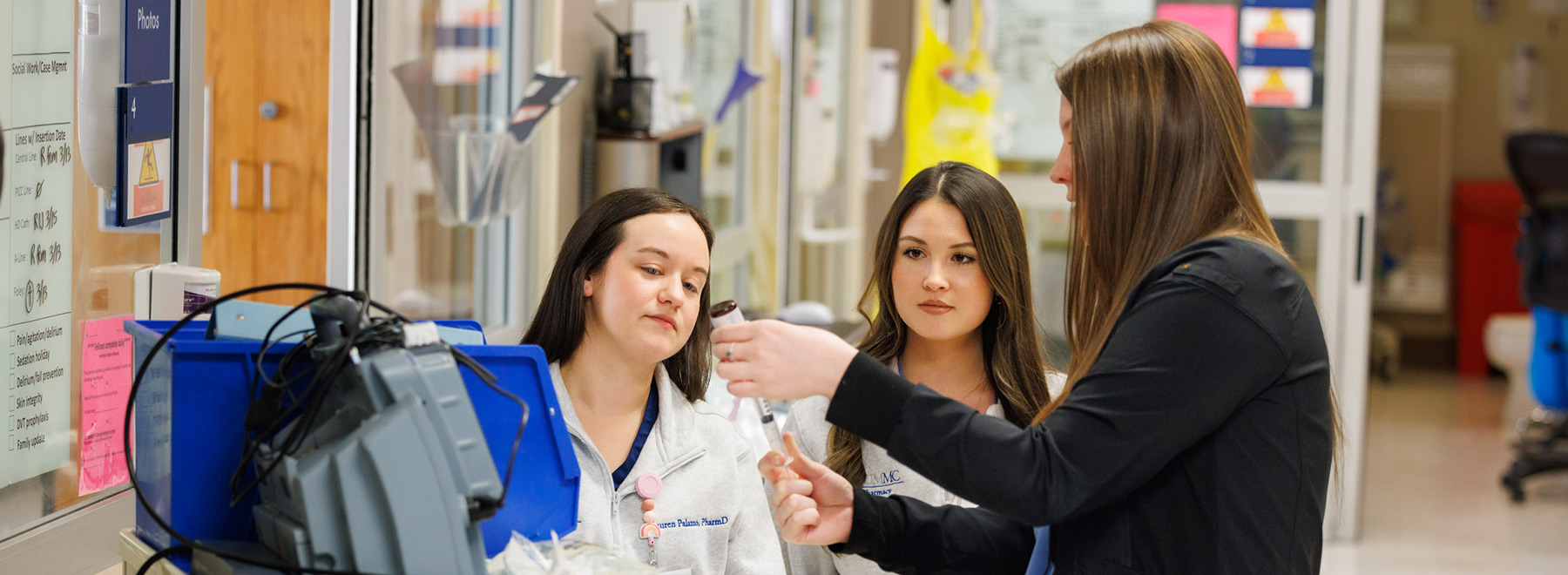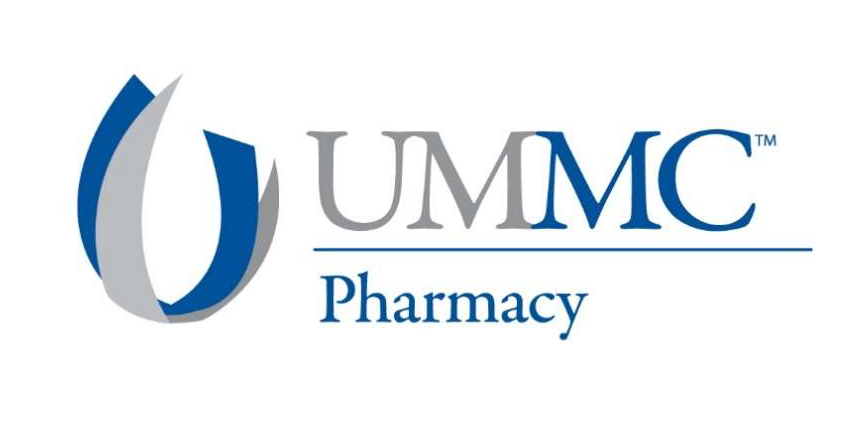
UMMC-based Pharmacy Residencies
Frequently Asked Questions

Select a question to jump to the answer.
What do you look for in your applicants?
Do you assign mentors?
How do you give feedback?
What changes do you anticipate for next year's program?
What does a typical schedule look like?
What are your staffing requirements?
Do you have an on-call requirement?
What opportunities are there to be involved in teaching?
What other opportunities make your program unique?
What benefits are offered at your program?
Can you tell me about living in Jackson, MS?
What do you look for in your applicants?
If we asked each of our preceptors, we would get a different answer from each one! Most of us, though, would say that we are drawn to residents who are personable and driven to be the best version of themselves. We have a close family and close relationships with our providers at UMMC, so we want you to be able to thrive in that environment. We expect you to be able to self-evaluate and grow with some guidance, but also a good bit of autonomy.
Do you assign mentors?
While each pharmacist and preceptor here will serve as a practice role model, we do have a formal mentorship program. Each resident will choose a professional mentor by September to help them on their journey. Residents are expected to meet with their mentors every month, for both personal and professional discussions. We assist with your selection of a mentor by pairing you with multiple preceptors during orientation and holding one or two Get to Know You events during orientation.
The PGY1 program also has built-in mentorship from our program coordinator, research mentors, and project/presentation mentors.
How do you give feedback?
Formally, you will receive evaluations at midpoint and end of each rotation through the PharmAcademic website. You will also receive a formal evaluation from your residency director at the end of each quarter. Each preceptor will provide more frequent feedback during your rotations based on performance.
What changes do you anticipate for next year's program?
Each quarter, the residents are asked what things they would like to see changed with the program. At the end of the year, we also request anonymous feedback from the residents about various aspects. We take that feedback into consideration when discussing what things will be changed or implemented. Our program leadership is dedicated to making our programs the best they can be. We are very open to feedback and discussion.
What does a typical schedule look like?
Each program has different requirements. See our website and residency manual for more details. In general, you will have both monthly rotations and longitudinal rotations. You also participate in staffing activities, pharmacokinetic consults and code coverage.
What are your staffing requirements?
Residents in the PGY1 program staff one out of every four weekends in Central pharmacy or the ICU pharmacy (6 months in Central and 6 months in the ICU pharmacy). The ID PGY2 resident staffs one out of every four weekends in Central pharmacy, the Critical Care PGY2 in the ICU pharmacy, and the Pediatric PGY2 in the Pediatric pharmacy.
Residents (PGY1, ID, and CC) also staff one evening shift in Central pharmacy every two weeks, and the Pediatric PGY2 will staff in the Pediatric pharmacy every two weeks.
Residents are expected to cover one major holiday block and one minor holiday per year.
Do you have an on-call requirement?
We currently do not have an official on-call program. However, PGY1 residents are responsible for responding to medical emergencies (codes, rapid responses) throughout the hospital on a rotating weekly schedule. PGY1s are also responsible for covering pharmacokinetic and anticoagulation consults for one internal medicine floor.
What opportunities are there to be involved in teaching?
Since the University of Mississippi School of Pharmacy third- and fourth-year students are primarily located on our Jackson campus, there are many, many opportunities to precept students. You also have the opportunity to participate in the Teaching and Learning Certificate program sponsored by the SOP.
What other opportunities make your program unique?
In addition to the rich and numerous opportunities to learn about taking care of complex patients in a multidisciplinary environment, we offer additional opportunities to be involved and learn about various aspects of pharmacy practice at a large academic medical center. Some of these include involvement in a research project, P&T projects, several presentations, practice management longitudinal rotation and service on a hospital committee.
Rotation schedules are made with your goals in mind and are flexible (pending preceptor availability). Our multiple elective options and few required rotations allow you to make the most of your year and tailor it to fit your needs.
What benefits are offered at your program?
Our residents are fully integrated employees with the Department of Pharmacy Practice. Some of the benefits include:
- Competitive salary - $55,000 for PGY1s and $60,000 for PGY2s
- Free covered parking in the garage
- 10 paid holidays per year
- State employee benefits
- Health insurance
- Accrual of 12 hours paid personal and eight hours medical leave per month
Can you tell me about living in Jackson, MS?
The average cost of living in Mississippi is 13% lower than the national average, and housing (buy/rent) is 29% lower than the national average. Our residents often choose to rent houses or apartments in Jackson, Flowood (a 15-minute drive), or Ridgeland (a 15-minute drive) for close access to the hospital. We have an extensive list of safe and affordable places to rent created by current and past residents to make the transition to Mississippi a smooth one! Some of the highlights of living in and around Jackson are the fantastic food and outdoor activities (Reservoir, Brandon Amphitheater, hiking/biking/walking trails, dog parks and more).


